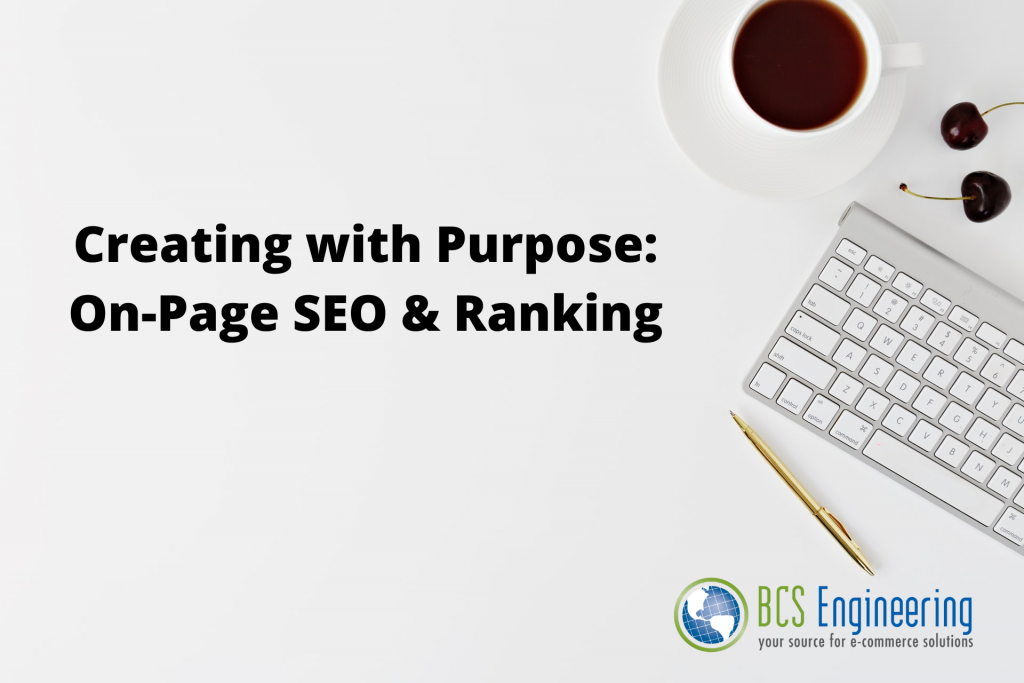In our previous article, we defined on-page search engine optimization (SEO). By improving the elements of our pages, we can improve our search engine ranking. The higher a webpage appears in search results, the more likely traffic will come to your business. Today, let’s take a look at some key factors that can improve your site’s ranking.

Websites that appear at the top of search engine results tend to have pages that have clear purpose. These pages contain hyper relevant content that is concise and organized. These qualities make it easy for both users and search engines to understand the value of a website. Being able to identity that value is what increases the rank of these pages.
Three key factors that need to reflect the value of your site in terms of on-page SEO are content, title tags, and URLs. By improving these three factors, search engines can better understand how useful your site is.
Content
Creating relevant content requires that there is a demand for your content. The demand could be as simple as the definition of a word or as complex as a specific product or service. As long as your page supplies for that demand, your ranking will increase. Concise, useful content that makes it clear what you are supplying will help bring customers your way.
Another consideration to account for is the reachability of your content. While the content of a page could be useful and in demand, if a search engine can’t see the page, it won’t be able to rank it. Reachable content is content that is visible and shared easily. This means that pages that are only accessible after a log in screen or pages that aren’t linkable will rank lower in search results. Ensuring that your pages are accessible will help bring your pages up the charts.
Title Tags
Title tags are the clickable headlines and short descriptions we see when looking at search results. These summaries are key to telling both users and search engines what your page is about. Like a sign on a physical store, accurate and concise title tags impact the traffic you attract. By clearly defining your page purpose in your title tags, you will improve SEO, user experience, and overall sharability.
URLs
Search engines value being able to understand your website through your URL structure. When looking at the URL of a site, being able to see where a user came from and logically how they ended up on the current page is considered when ranking. This means that the URL needs to reflect the page that is being illustrated.
Rather than having the homepage followed by a string of numbers as a page identifier, URLs should include human keywords. We should be able to see that we are diving down in specificity from the URL alone. By incorporating your page purpose clearly into the URL, search engines and users will better understand your page. Better user experience means better search engine ranking.
Want to learn more?
Carrie
Saunder’s upcoming course, “The Converting Website,” will dive into SEO and
other important factors that aim to optimize your website. Join the
waitlist today to stay up to date on the classes release!
